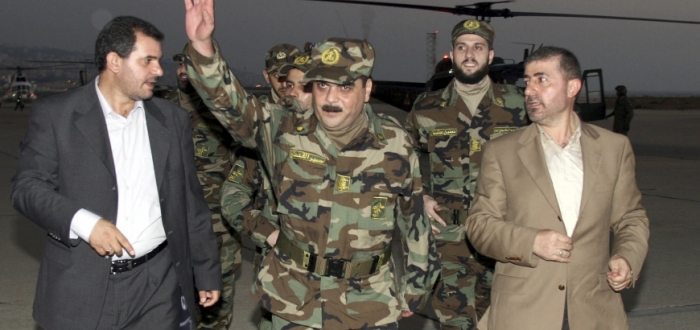The recent death of Lebanese Hezbollah commander Samir Kuntar represents a painful blow to both the Shia militia, backed by Iran, and the regime of Syrian President Bashar al-Assad, as the announcement places all three actors in an awkward position on a local and international level.
Kuntar’s assassination opens the door for several questions about the nature and form that a reaction from Hezbollah, Iran and the Assad regime may look like. Regardless of the reaction, it is unlikely to raise concern for Israel as the three parties must think carefully before embarking on any possible escalation.
Analysts and politicians claim the Assad regime will be unable to respond to Israel’s violation of Syrian airspace after it carried out raids in only a few kilometers away from Assad's presidential palace, especially since Israel reached an understanding with Russia regarding Moscow's military intervention in Syria, while Russia would not allow its impotent ally to disturb Israel – which has major interests with Russia.
As for Lebanon’s Hezbollah – for which the assassination of Kuntar represents a strong slap on the face – their response was limited to the firing of three Katyusha rockets toward Israeli-occupied Palestine, which was met with artillery shelling on Lebanese territory. Hezbollah finds itself in an awkward position as its militia is unable to launch a wide response against Israel for fear of its response, which may result in more human losses in Hezbollah ranks, especially since a third of its fighters have perished in Syria (reports of between 1,300-1,500 fighters, in addition to the injury of about 5,000 more).
Under the guidance of Iran, Hezbollah has poured its military efforts into the Syrian war, fighting beside the regime in several key areas. Furthermore, the militia cannot ignore the new realities imposed by the Russian military intervention in Syria, where Russia has become fully aware of the movements of Hezbollah’s fighters, and as such is a similar position to Assad: any response to Israel should take into account the convergence of interests between Moscow and Tel Aviv.
In return, Hezbollah will face many questions, especially among its support base who want the militia to respond in accordance with the significance of Kuntar’s assassination. It is expected that Hezbollah’s options will become clearer in the speech to be made by Secretary General Hassan Nasrallah, on Tuesday.
In the same context, Kuntar's death sheds light on the conflict between Iranian and Russian interests in Syria, despite their statements and actions that indicate their quest to keep Assad in power.
According to Israeli websites, Kuntar was recently working directly with the Iranian Revolutionary Guards Corps while distancing himself from the Hezbollah militia. The Times of Israel website said that Farhan Shaalan, who was killed along with Kuntar, was also recruited by Iran and not Hezbollah.
It appears Russia has not acknowledged Iranian interests in Syria, as analysts confirmed that Moscow was aware of the Israeli raid that targeted Kuntar for two reasons: Russia and Israel maintain high-level systematic coordination concerning their actions in Syria, and Russia’s S-400 missile system did not target the Israeli aircraft upon entering Syria’s airspace.
Israel cannot fly over Syria in the presence of a Russian missile defense system without alerting Moscow about the nature of the process and its goal. This represents a challenge to the relations and common interests between Russia and Iran in Syria, which is not limited to the assassination of Kuntar, but in Russia's growing desire to rein in Syria, even at the expense of Tehran.
This article was translated and edited by The Syrian Observer. Responsibility for the information and views set out in this article lies entirely with the author.


